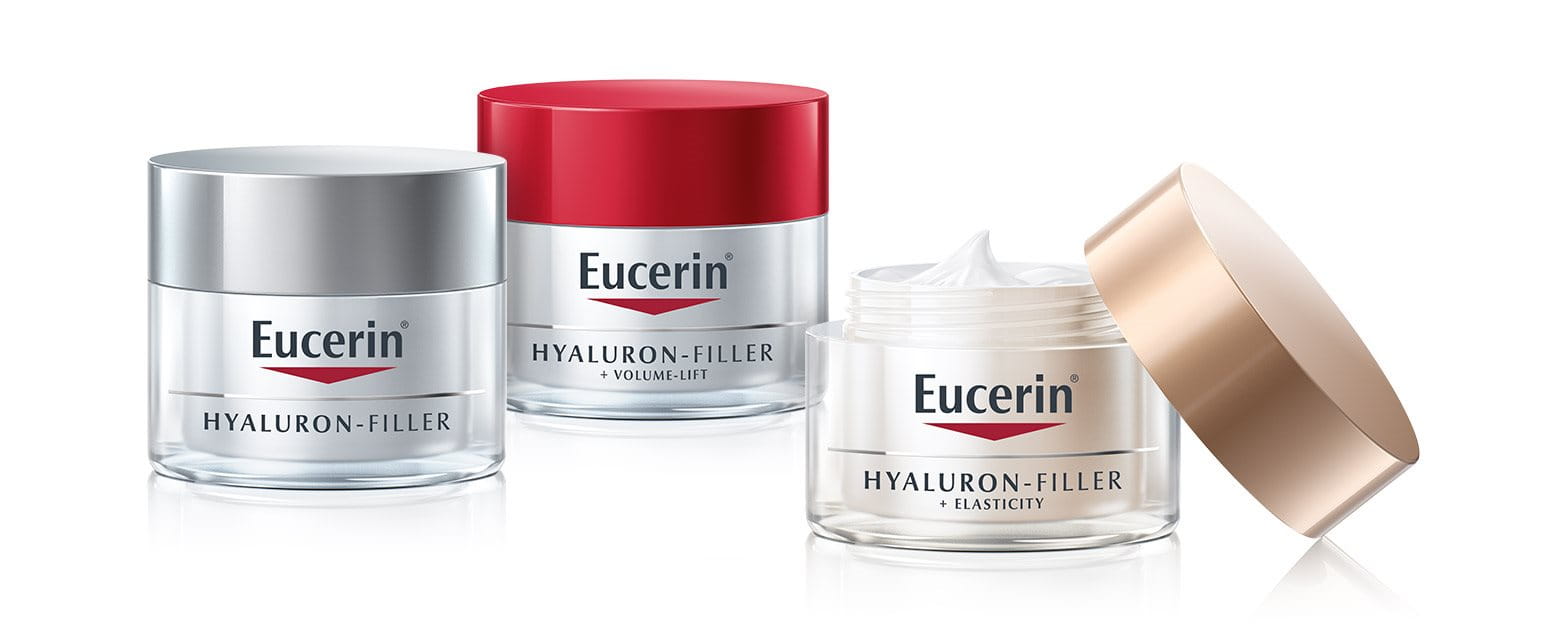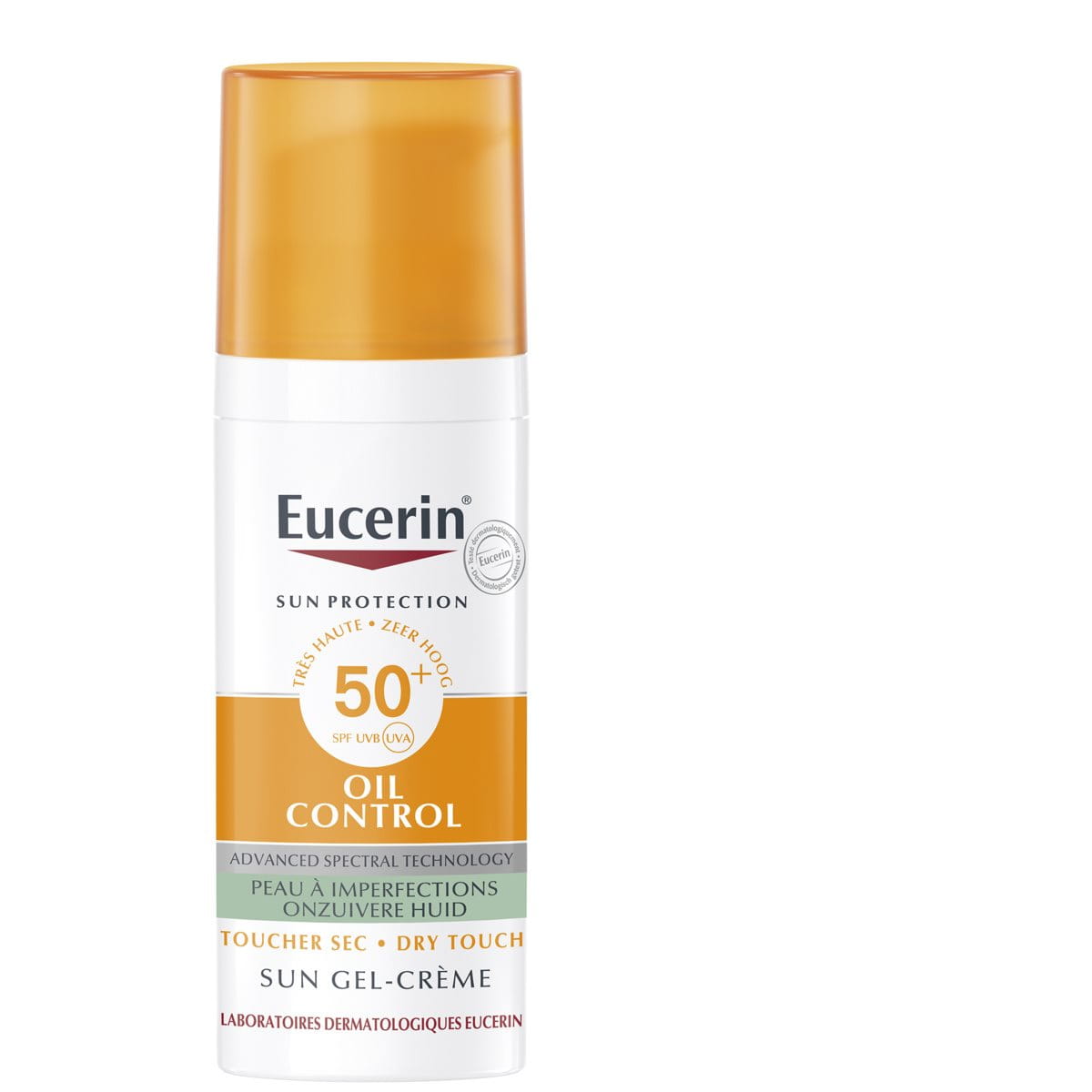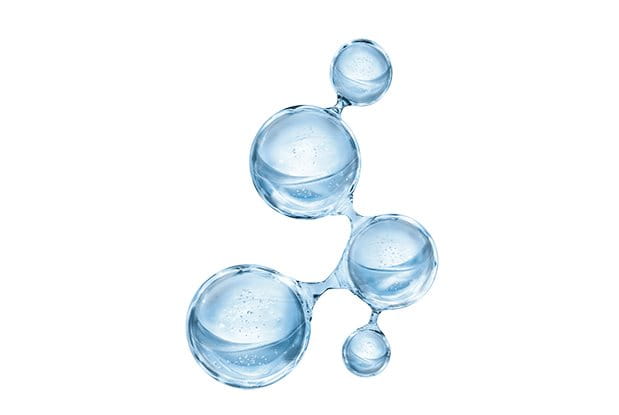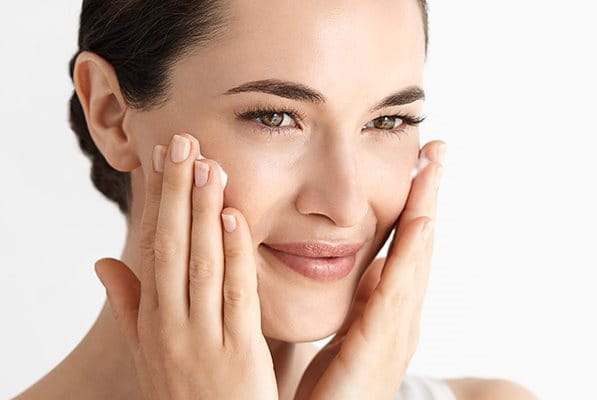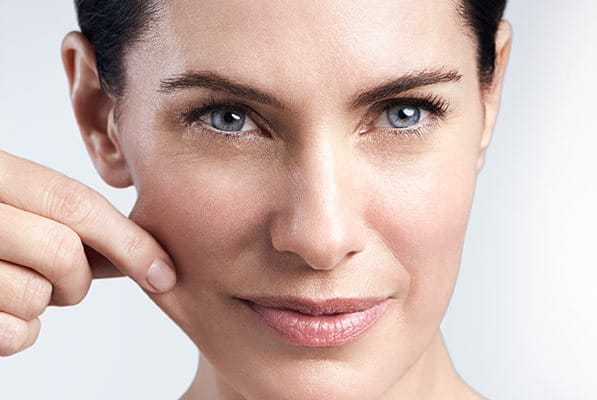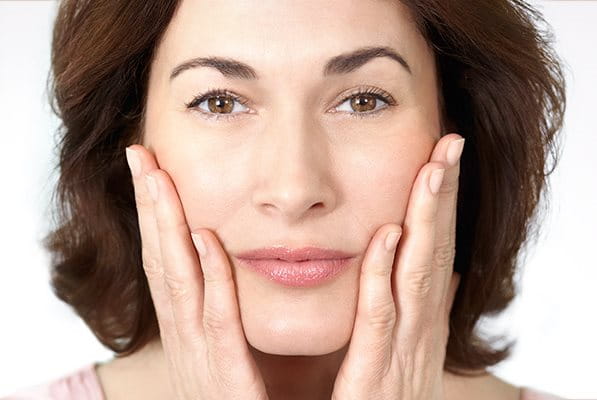Free radicals can cause the oxidative stress to skin that results in premature skin aging. This article explains what they are, what they do to your skin and the steps you can take to neutralize free radicals to keep skin healthy, to protect it from premature skin aging and to help delay the visible signs of skin aging such as fine lines and wrinkles and a loss of radiance.
What are free radicals?
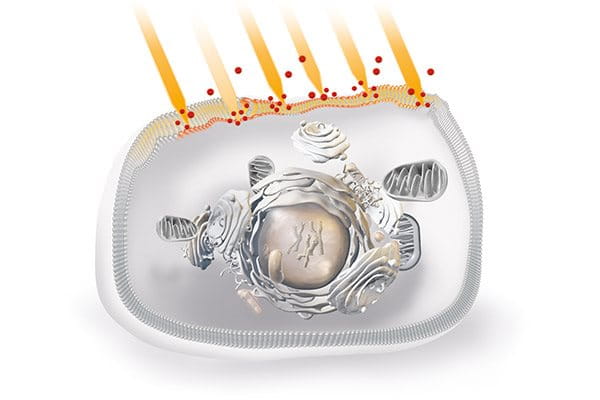
Free radicals, also known as Reactive Oxygen Species (ROS), are highly reactive oxygen molecules: the byproduct of ongoing biochemical reactions in the body.
Our bodies rely on oxygen, but normal bodily functions sometimes split paired oxygen molecules into two single atoms with unpaired electrons. These unpaired electrons scavenge around the body looking for another electron to form a stable pair which is why they are described as reactive. As they do this they cause damage to cell membranes, proteins and DNA.
Why are free radicals harmful to skin?
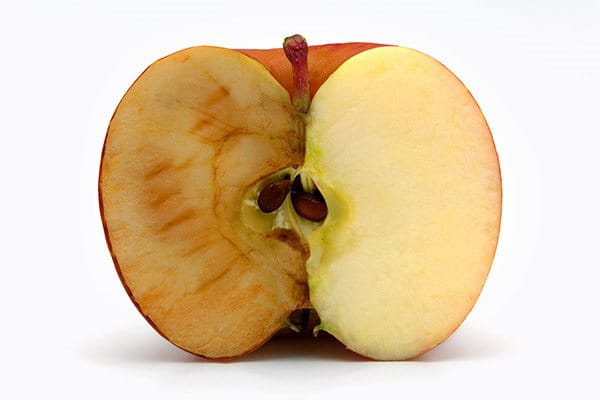
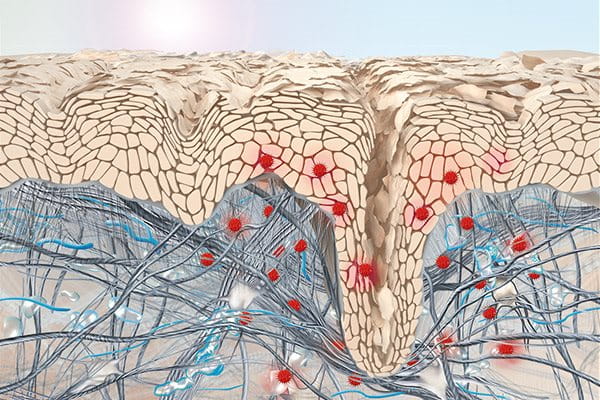
Have you ever taken a bite out of a banana or an apple and left it out in the air? That brown color it turns is a result of oxidation caused by free radicals. A similar process takes place in our skin but over the course of decades rather than minutes.
The body uses anti-oxidants to neutralize potentially harmful free radicals but, when there is an imbalance between the production of free radicals and the body’s ability to neutralize them, the free radicals start to damage cell membranes, proteins and DNA in a process known as oxidative stress.
Among the cells that are damaged are those responsible for the production of substances such as collagen, elastin and hyaluronic acid that give youthful skin its firm structure (e.g. fibroblasts and keratinocytes). Production of these substances naturally declines as we get older and oxidative stress even accelerates this process
While aging is an entirely natural process, oxidative stress can cause skin to age prematurely: it may start to develop visible signs of aging such as fine lines and wrinkles and appear dull and tired before its time.
Premature aging aside, as we get older skin’s ability to de-activate free radicals decreases naturally, leading to an acceleration in the skin aging process.
What causes free radicals?
While free radicals are a natural byproduct of the processes going on in our bodies, there are a number of external factors that are known to trigger and increase free radical production. Many of these external factors are controllable.
Free radicals and the sun

Sun, in moderation, is good for our skin and our bodies. You can find out why in the sun and skin. But overexposure to UVA rays (and, to a much lesser extent, high-energy visible light – the light we can see all around us) is one of the primary triggers of free radicals. Oxidative stress caused by the sun leads to DNA damage and conditions such as photoaging (premature skin aging caused by the sun) and hyperpigmentation. Find out more in How do the sun’s UVA, UVB and HEVIS Light rays affect skin?
Free radicals and our environment

Beyond sunlight, other aspects of our environment can also trigger skin-damaging free radicals. Many of us live in cities where dirt and pollution are an unavoidable part of life. Pollution can worsen the effects of sun exposure, accelerating oxidative stress.
Smoking and free radicals
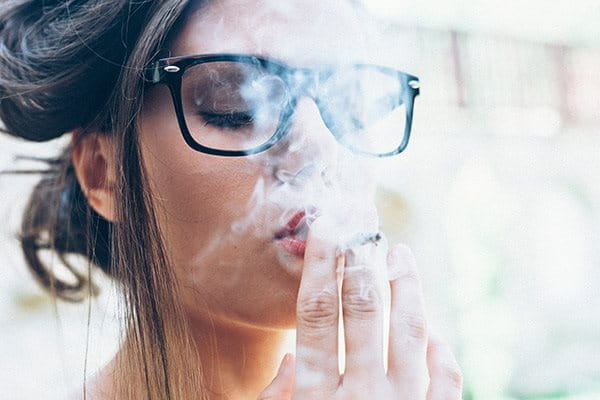
Smoking is as bad for our skin as it is for our overall health. The smoke itself contains free radicals which are inhaled into our bodies causing a range of problems including premature skin aging.
Free radicals and diet

Diet is vital to overall health, and our food and drink choices can affect the production of free radicals in our bodies. Some of the worst offenders for triggering free radicals are cooked or processed meats, deep fried food, anything high in saturated fat and alcohol.
How can you reduce free radicals and help prevent skin damage?
A healthy lifestyle and a regular, appropriate skincare routine will help you to reduce harmful free radicals, prevent premature skin aging and delay the visible signs of skin aging.
A healthy lifestyle

A healthy, balanced diet rich in anti-oxidants with help to fight free radicals. Green vegetables, citrus fruits, beans & pulses, nuts and oily fish are known to be particularly high in anti-oxidants. Stop smoking, try to reduce the amount of alcohol you drink and be sure to drink plenty of water to keep skin hydrated.
Don’t spend too long in the sun, use an appropriate sun protection product, try to reduce stress, take plenty of exercise and get a good night’s sleep to support your overall health, and the health of your skin.
Skin care to reduce free radical damage
Regular cleansing, moisturization, the use of powerful, proven anti-oxidant skincare ingredients such as Vitamin C and Licochalcone A and, most importantly, appropriate daily sun protection will help to keep your skin looking younger for longer.
The sooner you start taking caring of your skin the easier it’ll be to prevent premature skin aging. You can read about an ideal skincare routine for your 20s in anti-aging in your 20s. As we mature, skin’s needs change and the products we use should respond to its changing needs. You can find out more in How does skin age and how should I care for it?
The Eucerin anti-aging family includes three comprehensive ranges specially formulated and clinically and dermatologically proven to give skin the care it needs at each stage of the aging process.
